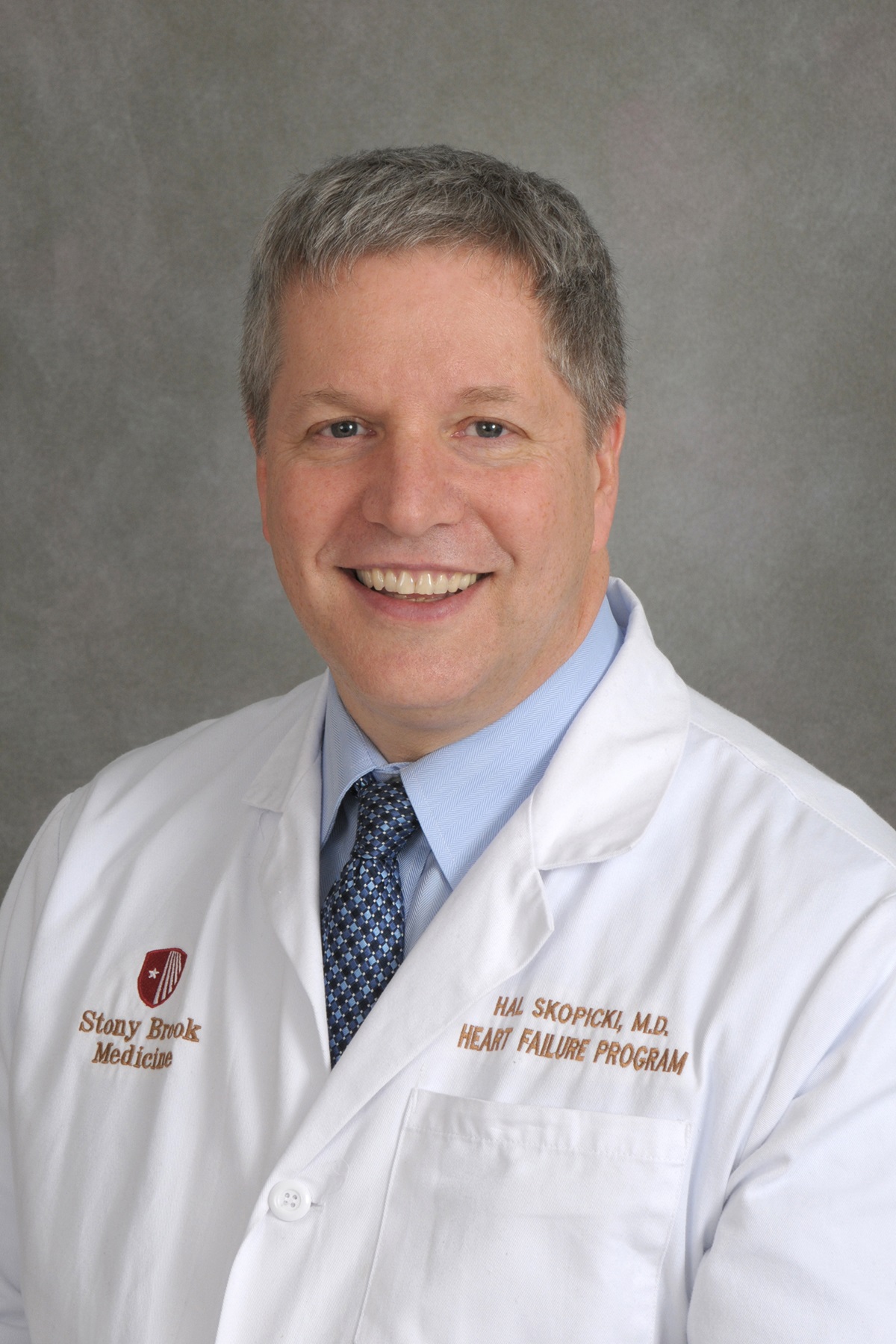When Dr. Hal Skopicki left Long Island at 18 for college and medical school, he said, he often looked for a path back.
“It’s one thing to be able to take care of strangers, but to be able to come home to Long Island and be able to take care of family and friends and friends of friends and the entire Long Island community is the dream,” Skopicki said.
Skopicki, of Roslyn, returned to Long Island in 1997 and was recently named chief of cardiology in the department of medicine at Stony Brook University School of Medicine and is deputy director of operations of the Stony Brook University Heart Institute.
Skopicki received a dual medical degree and Ph.D. from the Chicago Medical School and Rosalind Franklin University of Medicine and Science and was later honored with their distinguished alumnus award in 2007. He performed his residency in internal medicine at Yale-New Haven Hospital and completed a clinical cardiology fellowship and post-doctoral fellowship in molecular cardiology at Massachusetts General Hospital.
“I’ve always been fascinated by the fact that one organ could do so many different things, provide blood flow to all the other organs, to never take a heart beat off,” Skopicki said. “It’s not like another organ waiting for something to happen to it. This organ is proactive and constantly has to be functioning.”
Skopicki’s wife, Dr. Debra Skopicki, is a dermatologist in Woodmere, and Skopicki said he has coached his three daughters’ Roslyn Booster Basketball and Roslyn Little League teams for the past 15 years.
Skopicki said exercise accounts for more than 50 percent when it comes to heart health and that smoking is one of the worst things patients can do for their heart and overall health.
Skopicki said while juice cleanses are not bad for the body, popular diet plans that focus on cutting all of large groups of foods are not sustainable.
“I think this is the most misunderstood portion of everything we do in terms of a heart healthy lifestyle,” Skopicki said. “The fad diets, the weight loss plans, everything that hits the news as being a new antioxidant or a new way to live life, none of that has been demonstrated to improve your overall survival or decrease the chance for illness.”
Skopicki said a heart healthy diet is common in the Mediterranean region, rich in vegetables and lean proteins.
“When we start laying on the complex carbs — the breads, the sugars — they were designed because they taste really good, and that’s why people consume them in such large quantities,” Skopicki said. “They’re appealing to our brains and taste buds, but we did not evolve on those nutrients.”
At the Stony Brook University Heart Institute, Skopicki said, doctors are working with stem cell therapy for failed heart muscles and genetic predictors to identify people who are at higher risk for cardiovascular disease in part to avoid invasive surgeries when possible.
“We have a desire to try and avoid aggressive interventions like surgeries when other options and possibilities are present,” Skopicki said. “We have taken many patients who have been told they need bypass or valve surgery and we have been able to manage them in a way to avoid that surgery.”



